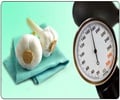A new ‘breakthrough treatment’ developed by a group of Australian researchers could prove to be of a major benefit in treating severely wounded soldiers in battle.

"In the last 10 years, about 5,000 allied soldiers have died on the battlefield (in Iraq and Afghanistan) and 87 percent happen in the first 30 minutes before they can even get to a treatment centre, so that is the key time," Geoffrey Dobson of James Cook University, who developed the treatment, told AFP.
"About 25 percent have been deemed potentially salvageable, so about 1,000 lives could (have been) saved with our new solution."
Dobson's therapy, developed with research associate Hayley Letson, increases the chances of survival for injured soldiers in remote areas by raising blood pressure in the vital first few minutes after they are wounded.
"If that pressure is too low, the soldier will die. If that pressure is too high, where a clot has occurred, the high pressure will break that clot and you'll re-bleed," Dobson said.
The professor was inspired by animals such as the hummingbird, whose heartbeat slows by up to 99 percent from regular levels of 1,500 beats per minute when they are in a hibernation-like torpor.
Advertisement
"We will also start talks on the regulatory process -? including clinical trials leading to FDA (official) approvals ?- within a year," he said.
Advertisement
It contrasts with the high volumes of up to six litres of liquid used by medics during the Vietnam War to resuscitate critically hurt soldiers.
The treatment has attracted the interest of the US Special Operations Command, which has pledged Aus$550,000 (US$470,000) to develop it for human trials next year.
Source-AFP








